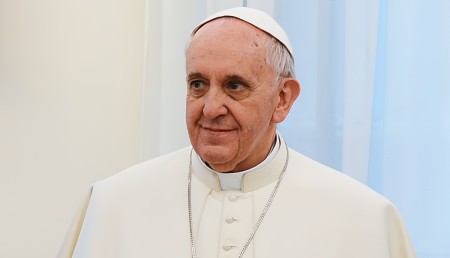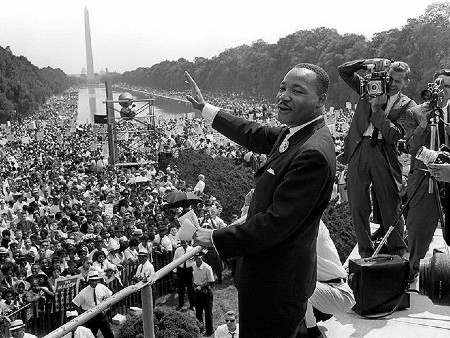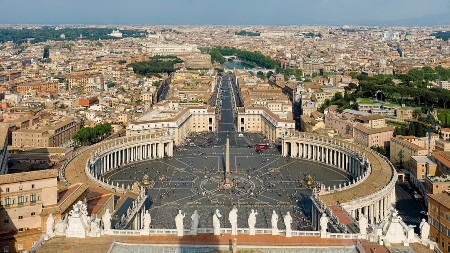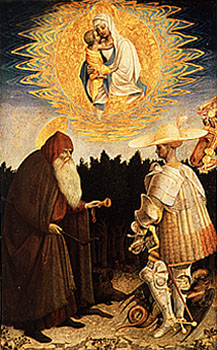We ask you, urgently: don’t scroll past this
Dear readers, Catholic Online was de-platformed by Shopify for our pro-life beliefs. They shut down our Catholic Online, Catholic Online School, Prayer Candles, and Catholic Online Learning Resources—essential faith tools serving over 1.4 million students and millions of families worldwide. Our founders, now in their 70's, just gave their entire life savings to protect this mission. But fewer than 2% of readers donate. If everyone gave just $5, the cost of a coffee, we could rebuild stronger and keep Catholic education free for all. Stand with us in faith. Thank you.Help Now >
Death of Alexy II and Dialogue
FREE Catholic Classes
The Vatican is paying homage to the work of the patriarch, who "in a period of great change" made the Russian Orthodox Church capable of "facing the challenges of transition from the Soviet era to the present one
Highlights
VATICAN CITY (AsiaNews) - Alexy II guided the Russian Orthodox Church "in a period of great change," making it capable of "facing the challenges of transition from the Soviet era to the present one," and his "personal commitment to promoting relations with the Catholic Church, in spite of the difficulties and tensions that have emerged from time to time," "was never brought into question." This is how the Vatican, through Cardinal Walter Kasper, is commemorating today the death of the patriarch of Moscow, joining "the hierarchy and faithful of the Russian Orthodox Church in commending Patriarch Alexy to the eternal love of the Heavenly Father."
A brief note from the pontifical council for the promotion of Christian unity contains the Vatican's first comment on the death of a man who since 1990, when he was elected, represented for Catholics both a hope and an obstacle. Following the fall of the Berlin Wall, in fact, the Catholic Church placed great hope in the possibility of reconciliation with the Russian Orthodox, made problematic in the past by the question of the "Uniates," Eastern rite Catholics. Harshly persecuted under the Stalinist regime, especially in Ukraine, to the point of forced dissolution and absorption by the patriarchate, with the fall of communism they demanded the restitution of what had been taken from them. This led to accusations of violence, and especially of proselytism.
In a "Letter to the bishops of the European continent on relations between Catholics and Orthodox in the new situation of Central and Eastern Europe" in May of 1991, John Paul II wrote that "dialogue still remains the best instrument for embarking upon a fraternal exchange which aims at settling the issue in a spirit of justice, charity and forgiveness. Brothers who once shared the same sufferings and trials ought not to oppose one another today, but should look together at the future opening before them with promising signs of hope."
From Moscow, in fact, there have been serious and increasing accusations of proselytism, leading to a decade-long shutdown in the work of the mixed Catholic and Orthodox commission. Moscow also refused to take part in the synod that in November of 1991 was focused on Christianity in a changing Europe.
The Vatican has never stopped trying to heal this rift. There have been encounters, commissions, exchanges of visits and of gifts, but essentially, during the entire pontificate of John Paul II, nothing changed. The 1995 encyclical "Ut Unum Sint," which among other things called for the Churches and their theologians to undertake a dialogue with him on how the pope could exercise his role in a way acceptable for all, had no effect. Nor was there any effect by the gift to Russia of the Mother of God of Kazan, possibly the most venerated icon of the country.
On the contrary. Partly at the request of the patriarchate, there was a series of laws, under Yeltsin and also with Putin, denying Catholics the status of an historical religion in Russia, and severely limiting their religious freedom. Attempts to organize a meeting between Alexy and John Paul II never came to a conclusion, although the pope said that he was willing to do this "anywhere."
On a positive note, there were exchanges of greetings, which sometimes were not merely formal, between the patriarch of Moscow and the pope, and a few visits to the Vatican by representatives of Russian Orthodoxy.
With the pontificate of Benedict XVI, things seem to have improved. There have been a few "gestures," leading to speculation about the possibility of a meeting between Benedict XVI and Alexy next year. Now everything will depend on who the new patriarch will be, and on the agreements that will be made at the moment of his selection. Without forgetting the significance that the "opinions" of the Russian political world have for the patriarchate.
Join the Movement
When you sign up below, you don't just join an email list - you're joining an entire movement for Free world class Catholic education.

-

-
Mysteries of the Rosary
-
St. Faustina Kowalska
-
Litany of the Blessed Virgin Mary
-
Saint of the Day for Wednesday, Oct 4th, 2023
-
Popular Saints
-
St. Francis of Assisi
-
Bible
-
Female / Women Saints
-
7 Morning Prayers you need to get your day started with God
-
Litany of the Blessed Virgin Mary
Daily Catholic
 Daily Readings for Friday, January 17, 2025
Daily Readings for Friday, January 17, 2025 St. Anthony the Abbot: Saint of the Day for Friday, January 17, 2025
St. Anthony the Abbot: Saint of the Day for Friday, January 17, 2025 Prayer for a Blessing on the New Year: Prayer of the Day for Tuesday, December 31, 2024
Prayer for a Blessing on the New Year: Prayer of the Day for Tuesday, December 31, 2024- Daily Readings for Thursday, January 16, 2025
- St. Fursey: Saint of the Day for Thursday, January 16, 2025
- St. Theresa of the Child Jesus: Prayer of the Day for Monday, December 30, 2024
![]()
Copyright 2024 Catholic Online. All materials contained on this site, whether written, audible or visual are the exclusive property of Catholic Online and are protected under U.S. and International copyright laws, © Copyright 2024 Catholic Online. Any unauthorized use, without prior written consent of Catholic Online is strictly forbidden and prohibited.
Catholic Online is a Project of Your Catholic Voice Foundation, a Not-for-Profit Corporation. Your Catholic Voice Foundation has been granted a recognition of tax exemption under Section 501(c)(3) of the Internal Revenue Code. Federal Tax Identification Number: 81-0596847. Your gift is tax-deductible as allowed by law.






 Daily Readings for Friday, January 17, 2025
Daily Readings for Friday, January 17, 2025 St. Anthony the Abbot: Saint of the Day for Friday, January 17, 2025
St. Anthony the Abbot: Saint of the Day for Friday, January 17, 2025 Prayer for a Blessing on the New Year: Prayer of the Day for Tuesday, December 31, 2024
Prayer for a Blessing on the New Year: Prayer of the Day for Tuesday, December 31, 2024

